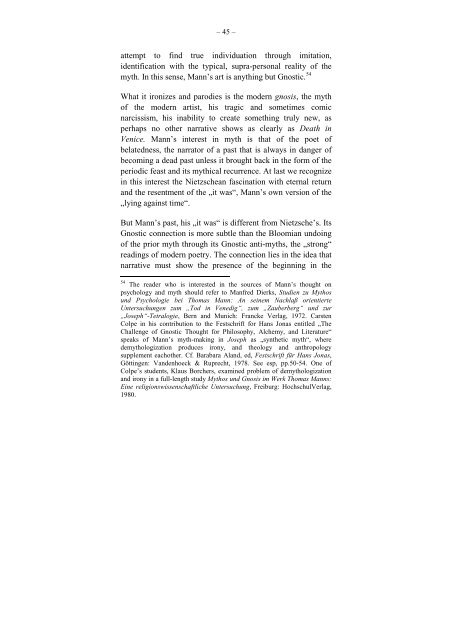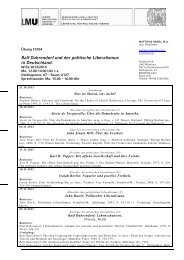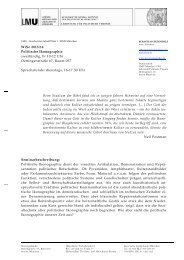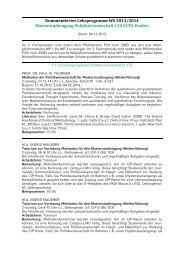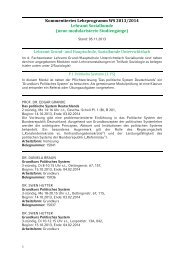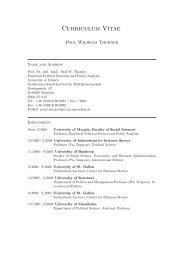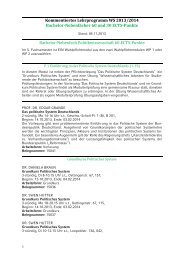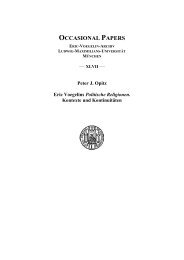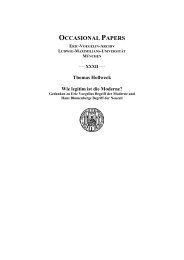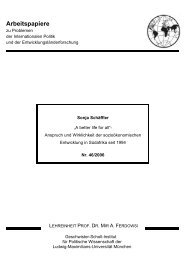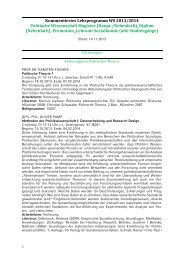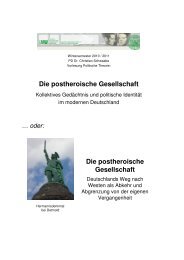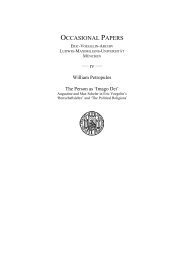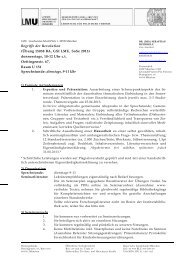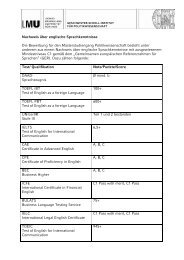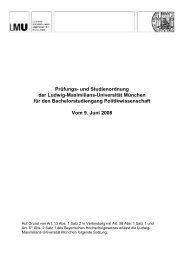THOMAS HOLLWECK is Associate Professor of German at
THOMAS HOLLWECK is Associate Professor of German at
THOMAS HOLLWECK is Associate Professor of German at
Create successful ePaper yourself
Turn your PDF publications into a flip-book with our unique Google optimized e-Paper software.
– 45 –<br />
<strong>at</strong>tempt to find true individu<strong>at</strong>ion through imit<strong>at</strong>ion,<br />
identific<strong>at</strong>ion with the typical, supra-personal reality <strong>of</strong> the<br />
myth. In th<strong>is</strong> sense, Mann’s art <strong>is</strong> anything but Gnostic. 54<br />
Wh<strong>at</strong> it ironizes and parodies <strong>is</strong> the modern gnos<strong>is</strong>, the myth<br />
<strong>of</strong> the modern art<strong>is</strong>t, h<strong>is</strong> tragic and sometimes comic<br />
narc<strong>is</strong>s<strong>is</strong>m, h<strong>is</strong> inability to cre<strong>at</strong>e something truly new, as<br />
perhaps no other narr<strong>at</strong>ive shows as clearly as De<strong>at</strong>h in<br />
Venice. Mann’s interest in myth <strong>is</strong> th<strong>at</strong> <strong>of</strong> the poet <strong>of</strong><br />
bel<strong>at</strong>edness, the narr<strong>at</strong>or <strong>of</strong> a past th<strong>at</strong> <strong>is</strong> always in danger <strong>of</strong><br />
becoming a dead past unless it brought back in the form <strong>of</strong> the<br />
periodic feast and its mythical recurrence. At last we recognize<br />
in th<strong>is</strong> interest the Nietzschean fascin<strong>at</strong>ion with eternal return<br />
and the resentment <strong>of</strong> the „it was“, Mann’s own version <strong>of</strong> the<br />
„lying against time“.<br />
But Mann’s past, h<strong>is</strong> „it was“ <strong>is</strong> different from Nietzsche’s. Its<br />
Gnostic connection <strong>is</strong> more subtle than the Bloomian undoing<br />
<strong>of</strong> the prior myth through its Gnostic anti-myths, the „strong“<br />
readings <strong>of</strong> modern poetry. The connection lies in the idea th<strong>at</strong><br />
narr<strong>at</strong>ive must show the presence <strong>of</strong> the beginning in the<br />
54 The reader who <strong>is</strong> interested in the sources <strong>of</strong> Mann’s thought on<br />
psychology and myth should refer to Manfred Dierks, Studien zu Mythos<br />
und Psychologie bei Thomas Mann: An seinem Nachlaß orientierte<br />
Untersuchungen zum „Tod in Venedig“, zum „Zauberberg“ und zur<br />
„Joseph“-Tetralogie, Bern and Munich: Francke Verlag, 1972. Carsten<br />
Colpe in h<strong>is</strong> contribution to the Festschrift for Hans Jonas entitled „The<br />
Challenge <strong>of</strong> Gnostic Thought for Philosophy, Alchemy, and Liter<strong>at</strong>ure“<br />
speaks <strong>of</strong> Mann’s myth-making in Joseph as „synthetic myth“, where<br />
demythologiz<strong>at</strong>ion produces irony, and theology and anthropology<br />
supplement eachother. Cf. Barabara Aland, ed, Festschrift für Hans Jonas,<br />
Göttingen: Vandenhoeck & Ruprecht, 1978. See esp, pp.50-54. One <strong>of</strong><br />
Colpe’s students, Klaus Borchers, examined problem <strong>of</strong> demythologiz<strong>at</strong>ion<br />
and irony in a full-length study Mythos und Gnos<strong>is</strong> im Werk Thomas Manns:<br />
Eine religionsw<strong>is</strong>senschaftliche Untersuchung, Freiburg: HochschulVerlag,<br />
1980.


